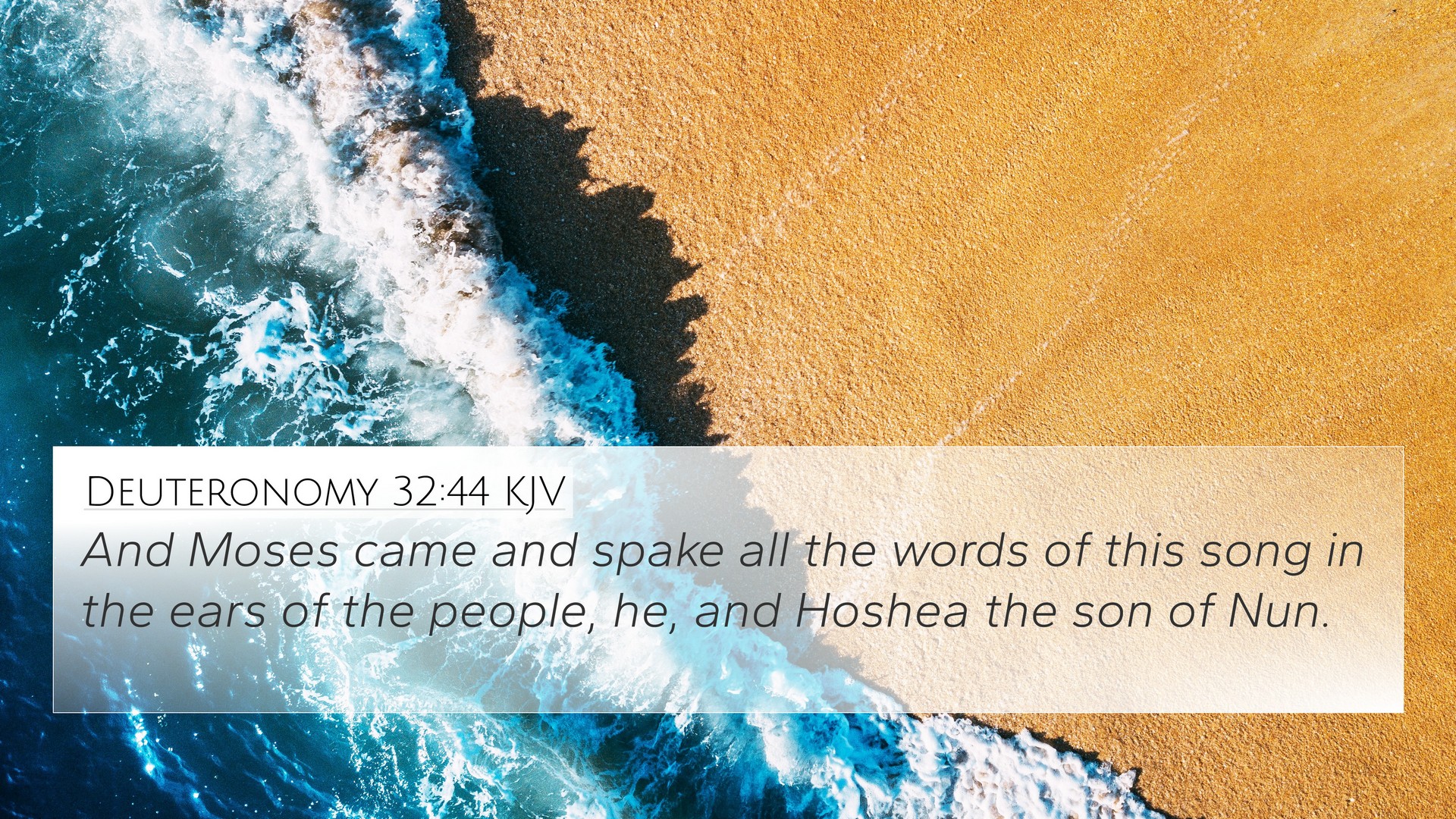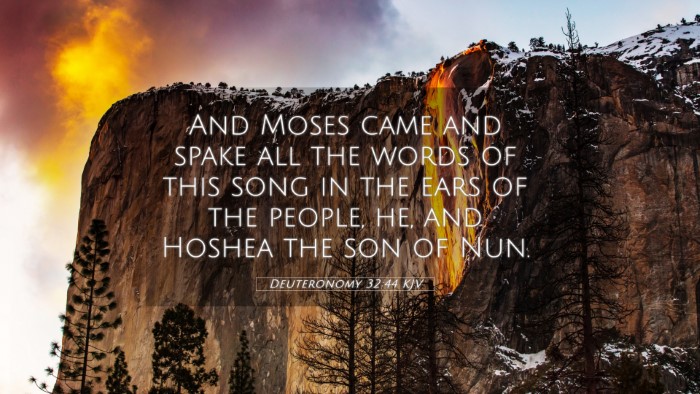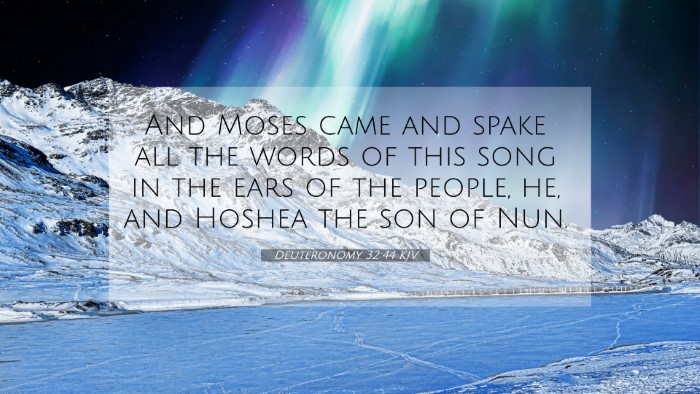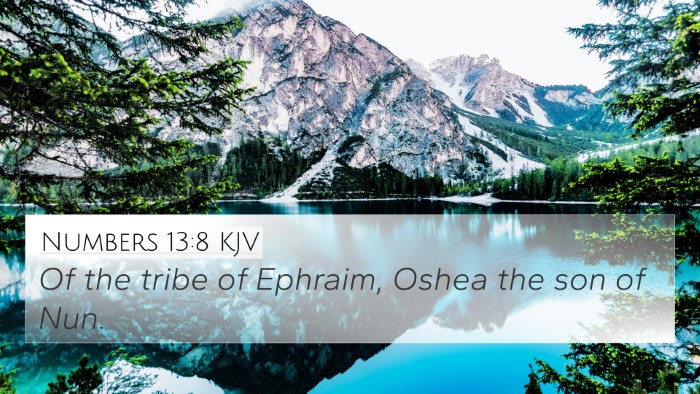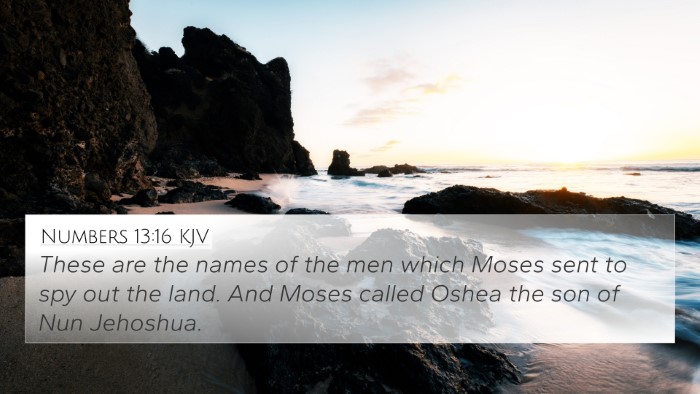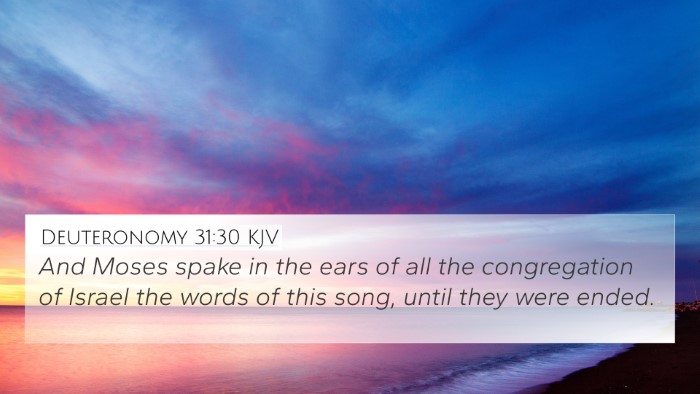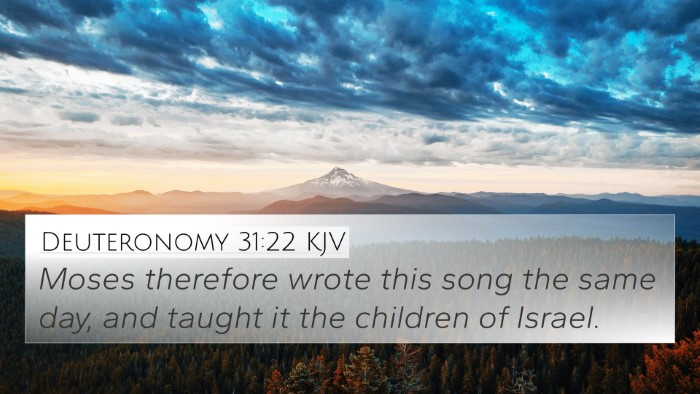Understanding Deuteronomy 32:44
Verse Context: Deuteronomy 32:44 states: "And Moses came and spake all the words of this song in the ears of the people, he, and Hoshea the son of Nun." This verse occurs within the context of Moses' final song, which he delivers to the Israelites. The song is a poignant reflection on Israel's journey, God's faithfulness, and the consequences of disobedience.
Verse Meaning and Insights
The significance of this verse can be understood through the lenses of various public domain commentaries, including those by Matthew Henry, Albert Barnes, and Adam Clarke. The following insights provide a comprehensive interpretation:
- Matthew Henry:
Henry emphasizes the importance of the song as a means of imparting God's law and the history of Israel's relationship with Him. He notes that Moses, as a leader, ensures that the people hear this message, reinforcing their need to remember God's commands and their covenant obligation.
- Albert Barnes:
Barnes highlights the unique role of Hoshea (Joshua) in this verse, noting that he is not only a companion to Moses but also signifies the future leadership of the Israelites. This connection points to continuity in leadership and God's ongoing guidance.
- Adam Clarke:
Clarke elaborates on the significance of singing as a method for teaching and remembrance. He asserts that music plays a critical role in the spiritual formation of the community, enhancing their memorization of God's truths.
Cross-References to Deuteronomy 32:44
To understand Deuteronomy 32:44 more deeply, it is beneficial to explore its connections with other Bible verses:
- Exodus 15:1-2 - The Song of Moses; a celebration of deliverance from Egypt.
- Deuteronomy 31:19 - God instructs Moses to write down a song to be a witness against the Israelites.
- Psalm 119:54 - Shows the importance of the law as a song in the believer's heart.
- Matthew 28:20 - Jesus’ promise to be with His followers, akin to God’s promise in the Old Testament.
- Acts 7:37-38 - References Moses as a leader, confirming his prophetic role as depicted in Deuteronomy.
- Hebrews 2:12 - The concept of singing praises to God relates to the communal aspect initiated by Moses.
- Revelation 15:3 - The song of Moses signifies the ultimate redemption and glory of God.
Connections Between Bible Verses
The connections between these verses illustrate a thematic coherence present in the canon of scripture. By examining Deuteronomy 32:44 alongside its cross-references, one can discern several key themes:
- Leadership and Guidance: The continuity of leadership from Moses to Joshua illustrates God's commitment to guiding His people.
- Music as a Teaching Tool: The use of song reinforces the importance of remembering God's deeds and commandments.
- Covenant Faithfulness: The repeated mention of God's promises serves to remind the Israelites of their covenant responsibilities.
Bible Cross-Reference Tools
As you delve into the study of connections between Bible verses, various tools can enhance your understanding:
- Bible Concordance: A comprehensive index that allows one to find verses related to specific words.
- Bible Cross-Reference Guide: Resourceful for tracing thematic links throughout scripture.
- Cross-Reference Bible Study: Methods designed to explore elaborate inter-Biblical dialogues.
- Bible Reference Resources: Various analytical tools to facilitate deeper understanding and research.
Conclusion
Deuteronomy 32:44 serves as a foundational verse in understanding the responsibilities of leadership in Israel and the importance of preserving God's word through song. By engaging with this verse and utilizing cross-referencing techniques, believers can gain deeper insights into God's nature and His expectations of His people.
Exploring these connections aids in one's spiritual growth and enhances the understanding of how scripture interconnects to reveal comprehensive theological truths.
